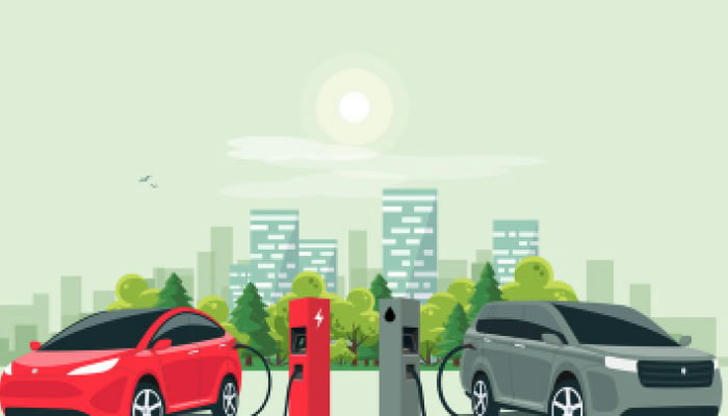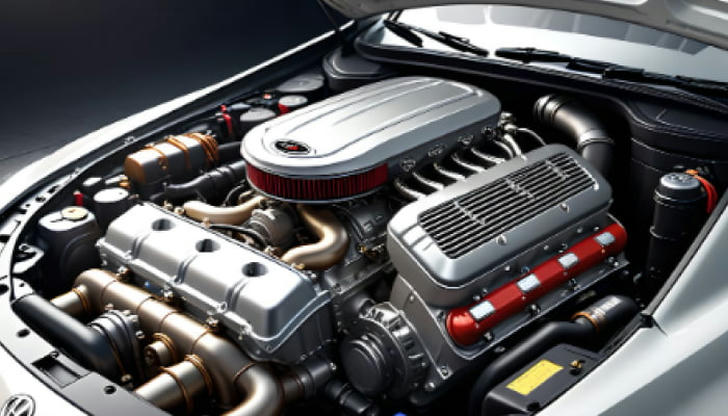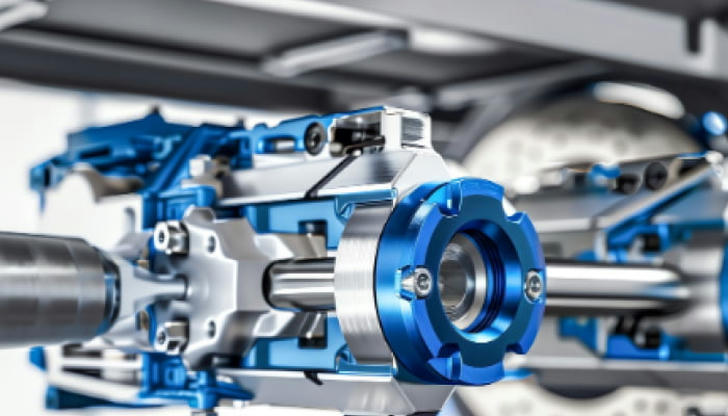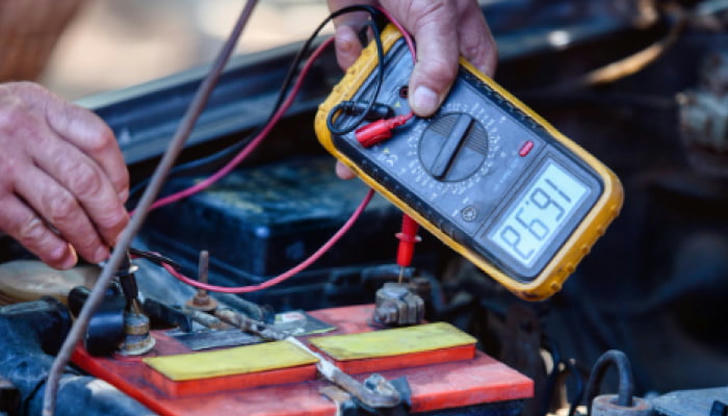Electric vs. Gasoline Cars: How EV Maintenance Differs

Electric vehicles (EVs) are revolutionizing the automotive world, offering a cleaner, more sustainable alternative to traditional gasoline-powered cars. One of the key factors influencing consumers' decisions to switch from gasoline to electric is the difference in maintenance requirements. This article will explore the contrasts between maintaining an EV and a gasoline-powered car, providing insights into how the future of vehicle maintenance may look as electric vehicles gain popularity.
Electric Vehicles and Gasoline Cars
Gasoline-powered cars have been the standard for more than a century. However, as environmental concerns increase and technology advances, electric vehicles have emerged as a viable alternative. EVs, such as Tesla, Nissan Leaf, and Chevy Bolt, operate entirely on electric power stored in batteries, eliminating the need for gasoline. On the other hand, traditional cars run on internal combustion engines (ICEs) that burn gasoline to generate power.
Although the driving experience of an EV may feel similar to that of a gasoline-powered car, the mechanics under the hood are quite different. These differences significantly impact the frequency, type, and cost of maintenance required for each type of vehicle. Understanding these distinctions is essential for car owners who are considering making the switch to electric.
Key Differences in Maintenance Between Electric and Gasoline Cars

When comparing electric and gasoline cars, the most significant contrast is the number of moving parts in their respective powertrains. Gasoline-powered cars have complex engines with hundreds of moving parts, whereas EVs have far fewer. This difference leads to a noticeable reduction in maintenance needs for electric vehicles.
Here are some key areas where EV maintenance differs from gasoline car maintenance:
1. Engine and Powertrain

Gasoline Cars: The internal combustion engine in a gasoline car requires regular oil changes to lubricate moving parts, which are essential for smooth engine operation. There are also many other components such as spark plugs, timing belts, and exhaust systems that need periodic inspections and replacements.
Electric Cars: EVs do not have internal combustion engines, eliminating the need for oil changes, spark plugs, and other engine-related maintenance. Instead, EVs rely on electric motors, which are much simpler and require minimal maintenance. This reduces both the time and cost of upkeep for EV owners.
2. Brake System

Gasoline Cars: Traditional cars use hydraulic braking systems that often need routine maintenance, including brake pads and rotor replacements. Braking in gasoline cars typically wears down these components faster due to the reliance on friction-based braking.
Electric Cars: Many EVs feature regenerative braking systems, which use the electric motor to slow down the car and recharge the battery at the same time. This regenerative braking significantly reduces wear on brake pads and rotors, meaning fewer brake replacements over the vehicle's lifetime. As a result, EV brake systems typically last longer than those in gasoline cars.
3. Transmission and Drivetrain
Gasoline Cars: Most gasoline-powered cars have complex transmissions, requiring regular fluid changes and inspections to ensure smooth gear shifts. Transmission repairs can be costly if issues arise, adding to the long-term maintenance expenses.
Electric Cars: EVs typically have single-speed transmissions, which means they don't require the same level of maintenance as multi-speed transmissions found in gasoline cars. The simplicity of the electric drivetrain results in fewer moving parts and lower maintenance costs overall.
4. Cooling Systems
Gasoline Cars: ICE cars rely on intricate cooling systems to prevent the engine from overheating. Regular coolant checks, radiator inspections, and hose replacements are necessary to keep the engine functioning properly.
Electric Cars: While EVs also have cooling systems, they are generally less complex because electric motors generate less heat than combustion engines. Battery cooling is crucial in EVs, but modern electric vehicles are designed with sophisticated temperature management systems that require minimal maintenance compared to traditional car engines.
5. Fuel System
Gasoline Cars: A gasoline-powered car's fuel system consists of many parts, including fuel pumps, injectors, and filters, all of which require maintenance over time. Additionally, drivers need to periodically check the fuel lines for leaks or corrosion.
Electric Cars: Since electric vehicles do not use fuel, they don't have fuel systems to maintain. This is one more way in which EV maintenance is simplified, reducing overall upkeep needs.
6. Battery Life and Maintenance
Gasoline Cars: Gasoline cars do have batteries, but they serve only to power the electrical systems and start the engine. These batteries typically need to be replaced every 3-5 years, depending on usage.
Electric Cars: The battery is the heart of an EV, providing power to the entire vehicle. Modern EV batteries are designed to last for many years, with most manufacturers offering warranties of 8-10 years or 100,000 miles. However, over time, EV batteries may lose capacity, leading to reduced range. While replacing an EV battery is expensive, it is a rare occurrence due to advancements in battery technology.
Maintenance Costs: Which is More Affordable?
One of the most common questions asked by potential EV buyers is whether electric cars are more expensive to maintain than gasoline cars. The answer is clear: EVs generally have lower maintenance costs. The absence of oil changes, spark plugs, exhaust systems, and complicated transmissions means fewer components that can fail or require regular upkeep. Additionally, EV brakes last longer due to regenerative braking, and electric motors are more reliable than internal combustion engines.
According to a study by Consumer Reports, the average maintenance cost for electric vehicles is about 50% less than that of gasoline cars over the vehicle's lifetime. While the upfront cost of an EV may be higher, the savings in maintenance and fuel make EVs more cost-effective in the long run.
EV Maintenance Tips for New Owners
If you're new to owning an electric vehicle, here are a few tips to help you keep your EV in excellent condition:
Monitor Battery Health: Keep an eye on your EV's battery capacity and avoid frequent deep discharges. Charging your EV regularly and avoiding extreme temperatures can help prolong battery life.
Check Tire Wear: EVs tend to be heavier than gasoline cars due to the weight of the battery, which can cause tires to wear out faster. Regular tire rotations and inspections are important to ensure even tire wear.
Software Updates: Many EVs receive over-the-air software updates that improve performance and add new features. Make sure your vehicle is connected to receive these updates for optimal operation.
Conclusion: The Future of Car Maintenance
The rise of electric vehicles marks a significant shift in the way we think about car maintenance. With fewer moving parts, no need for oil changes, and less frequent brake replacements, EVs offer a simpler and more cost-effective maintenance experience. While gasoline-powered cars will continue to dominate the roads for the foreseeable future, the growing popularity of EVs signals a future where vehicle maintenance will become easier and more affordable for drivers.
As more people switch to electric cars, the automotive service industry will likely evolve to meet the needs of EV owners. Whether you're considering making the switch or just curious about the differences, understanding how electric vehicle maintenance differs from traditional gasoline cars is key to making informed decisions about your next car purchase.
